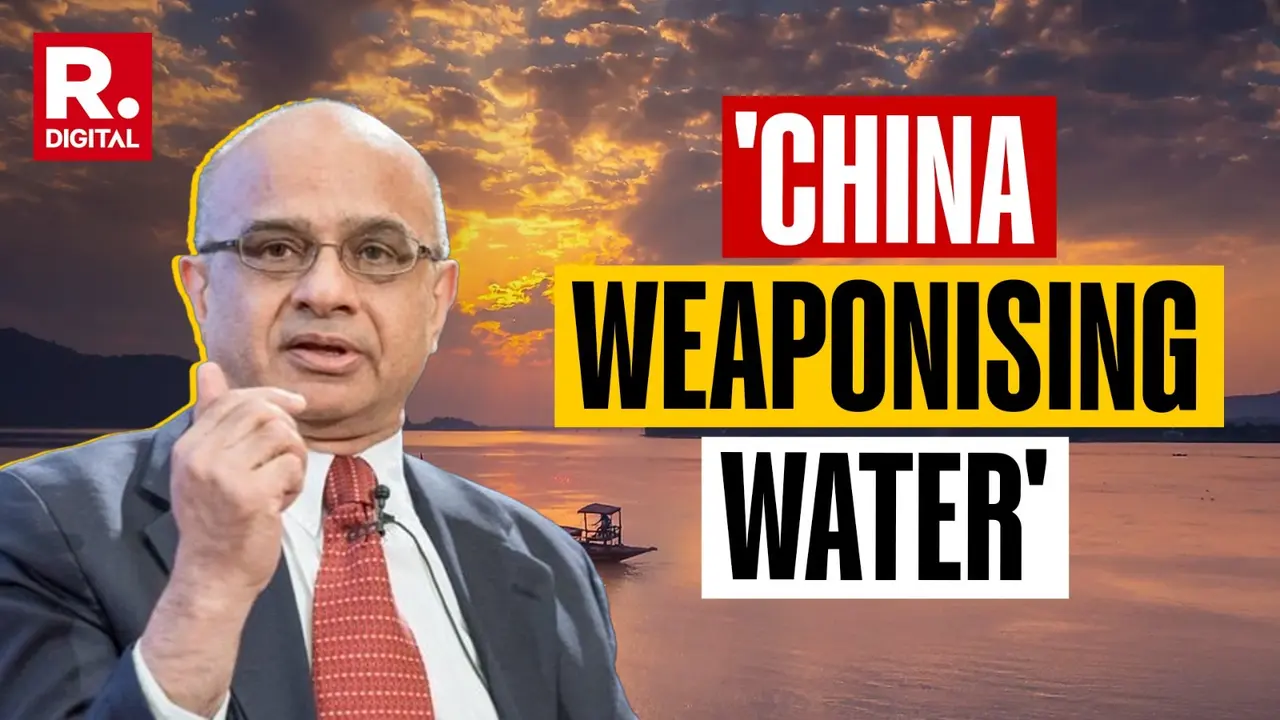Updated 27 December 2024 at 22:18 IST
China Weaponising Water Vis-a-Vis Brahmaputra Dam Project: Top Strategic Expert Brahma Chellaney
Geo Strategic Expert Brahma Chellaney has said that China building the world's largest dam on the Brahmaputra river will have strategic implications.
- India News
- 4 min read

New Delhi: Geo Strategic Expert Brahma Chellaney has said that China is weaponising water at its own sweet will as it is building the world's largest dam on Brahmaputra river. In an exclusive conversation with Republic Media Network's Editor-in-Chief Arnab Goswami on the debate, Brahma said that the dam project will have strategic and environmental implications on downstream countries. It is to be mentioned that China is building the world's largest dam on the Brahmaputra River in Tibet, with an estimated cost of USD 137 billion, sparking concerns in neighboring India and Bangladesh .
Speaking to Republic, Brahma Chellaney said that China has a record of studying transnational river projects in secrecy and only when its work can no longer be hidden from satellites, it finally admits that the project is underway.
“This particular project (building biggest dam on Brahmaputra) was unveiled some years ago in March 2021. The Chinese government later approved the project,” Brahma said.
“In May 2021, China also unveiled a highway to this remote region where the dam is being built which is very close to the Indian border. This is where the great belt of the Brahmaputra river is. The highway made this remote region, where the dam will come up, more accessible,” Brahma informed.
Advertisement
In June 2021, China also opened its railway to a military base town near the dam site. All this indicates that the work on this project began in 2021. So this is not a new project but it’s strategic and environmental implications are going to be significant for downstream communities in India, Bangladesh because Dhaka will bear the brunt of the environmental havoc caused by this project, he added.
China weaponising water, says Brahma
Accusing China of weaponising water, Geo Strategic expert Brahma said, “The Tibetan plateau is the starting point of Asia’s major river systems and ever since China annexed Tibet, removing the historical buffer with the Indian and Chinese civilisations, it become a dominant hegemon of Asia. Today, it's a source of river for more than dozen countries located downstream. But what stands out is that China does not have a single water sharing arrangement or treaty with any downstream country unlike India.”
Advertisement
“To make matters worse, it has a record of actually weaponising water and we have seen how it had resorted to weaponising water even against India,” he said.
Brahma further informed that there is a bilateral agreement between China and India on transferring and sharing upstream hydrological data with New Delhi. But this data is not given for free but it's sold to India unlike how New Delhi shares hydrological data with Pakistan and Bangladesh for free. And yet, wherever China wants, it suspends transferring hydrological data to India.
“It did it in 2017 when India boycotted China's ‘One Road Belt' initiative, during the 2020 Galwan standoff and only this month (December) it (China) agreed to resume sharing of the hydrological data… to put it straight, China weaponises water at its own sweet will,” Brahma said.
Joining the debate, Political and Economic Expert and senior fellow at the Taihe Institute, Einar Tangen said China has water on its lands and the project is being built as it will produce 3-times more electricty than the existing world's largest dam.
When asked by Arnab, Whether China was breaking international laws and attempting to hide its plans which will have implications for bilateral relations and for the planet, Einar Tangen said that these are mostly speculations.
China has a long record of trying to increase economic development and this project will provide 3 times more electricity than the world’s previous existing largest dam. So from their perspective, it's water on their lands and they want to do it, Tangen said.
Tangen further said, “I do agree that these nations (who are situated downstream) have to come together and there has to be some sort of diplomatic approach to them. These nations are water stressed, it's a humanitarian issue and should be handled diplomatically.”
China admits building world's largest dam on Brahmaputra river in Tibet
The Chinese government has sanctioned the construction of a hydropower project (dam) on the lower reaches of the Yarlung Zangbo River, the Tibetan name for the Brahmaputra, according to an official statement cited by Xinhua news agency.
The dam will be constructed at a vast gorge in the Himalayan region where the Brahmaputra River takes a sharp U-turn, flowing into Arunachal Pradesh before heading to Bangladesh.
Get Current Updates on India News, Entertainment News, Cricket News along with Latest News and Web Stories from India and around the world.
Published By : Shashwat Bhandari
Published On: 27 December 2024 at 21:51 IST
